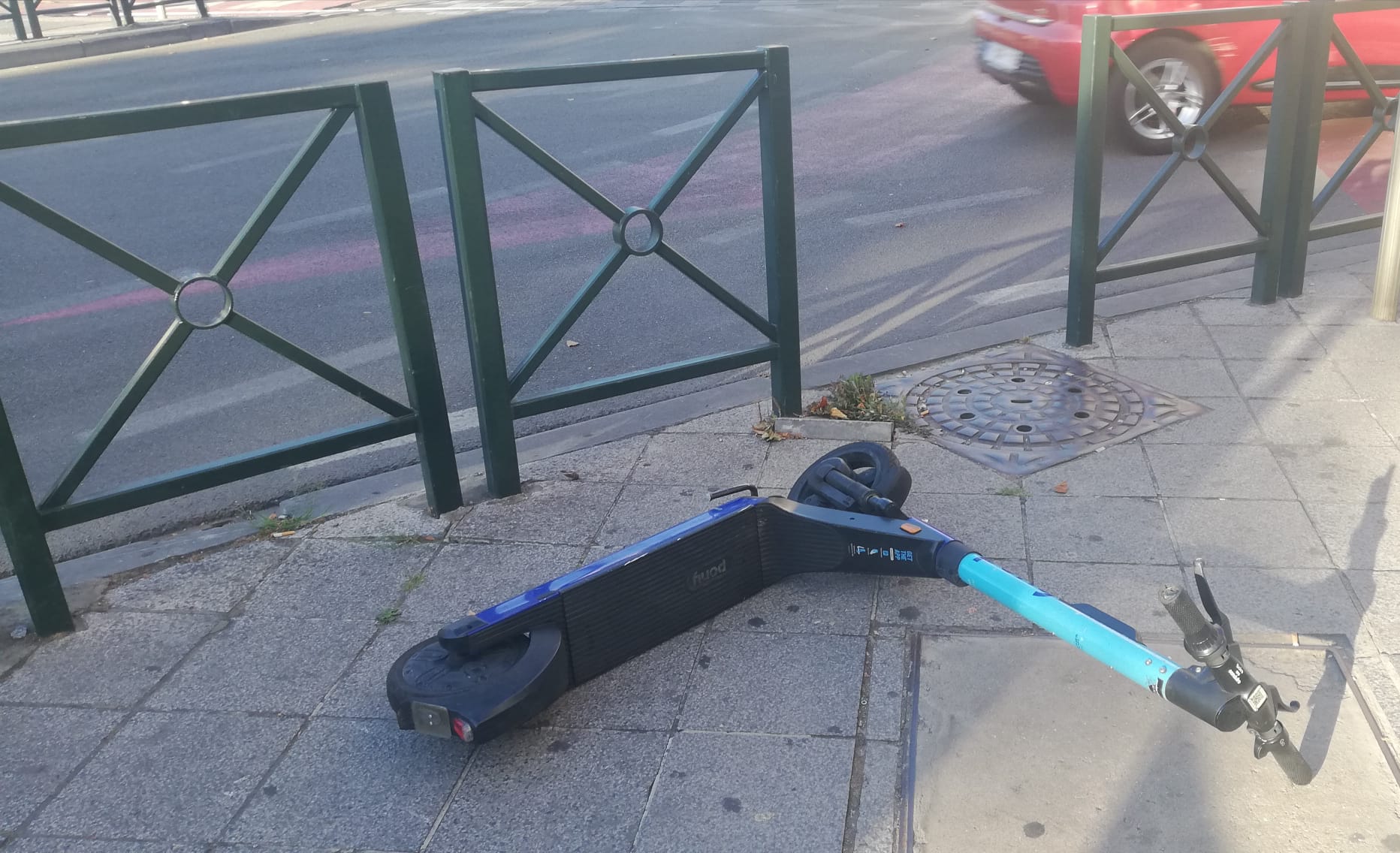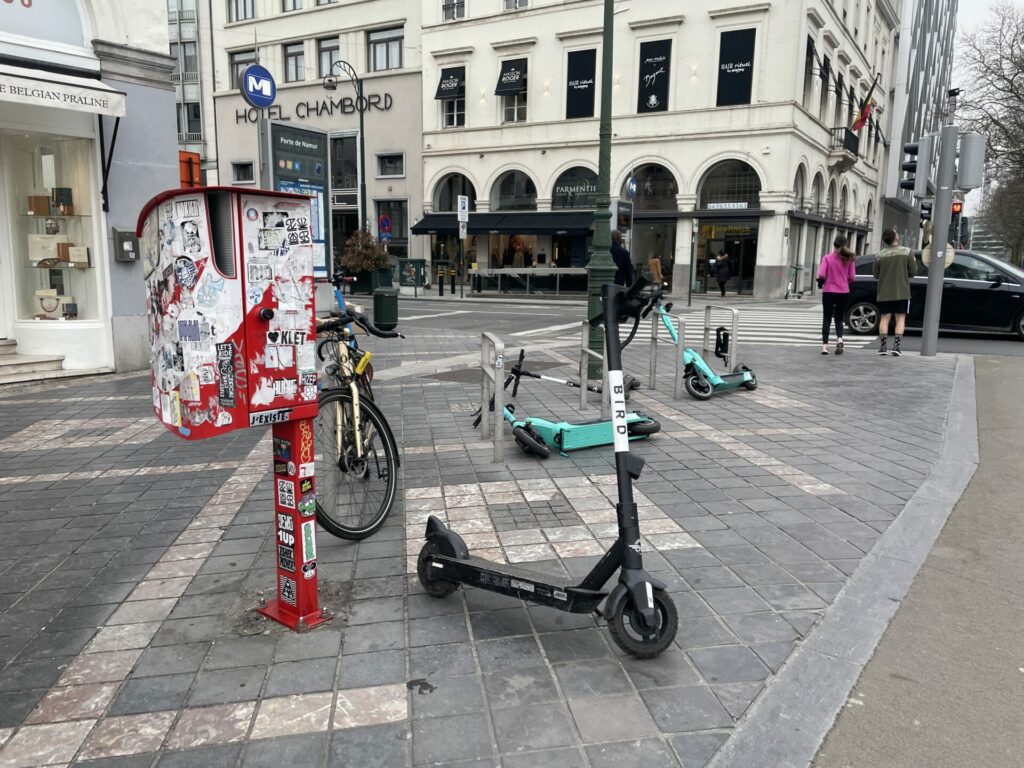On Wednesday, Cawab (Collectif Accessibilité Wallonie Bruxelles) and the Walk platform set out in Brussels, Liège and Namur to raise awareness about the dangers of parked scooters on pavements and its negative effects on accessibility for people with disabilities.
Flyers were hung on the handlebars of scooters which read: "Badly parked vehicle, danger! This vehicle is an obstacle for pedestrians, in particular for people with reduced mobility", and were all accompanied by the hashtag #LibérezNosTrottoirs (#FreeOurSidewalks).
"If a scooter is badly parked on the pavement and a visually impaired person comes, their cane can pass over it they can fall", explained Mathieu Angelo, Director of Cawab. "Scooters parked in the wrong place can be a real problem."

Leaving e-scooters on the middle of the pavement can be detrimental for people with mobility issues. Credit: The Brussels times
The President of Cawab, Nino Peeters, who suffers from a disability himself, told La Dernière Heure that a member of their collective does not leave their house in fear of the scooters, stating that the scooter problem is creating a situation of exclusion.
The timing of the action is not random, as the micro-mobility ordinance which set out the general framework was approved last February but the implementing decree is still pending. The associations expect results, according to Minister Van den Brandt.
A point in the ordinance which is highly appreciated by the associations is that the current number of 23,500 scooters could be reduced to 13,000, with different types of licenses. It should also be noted that in the first draft, the ordinance stipulates a limit of 20 km/h for scooters and 25 km/h for shared bikes.
Related News
- 'Can't keep waiting for regional rules': Nine Brussels municipalities restrict scooters
- Scattered scooters: Brussels aims to better regulate shared mobility
Another change is a new framework to provide territories with compulsory drop-zones and areas without a drop-zone. "There should be no vagueness. We would like to have compulsory drop-zones and on the road", explained Angelo. There are already drop-zones in some municipalities but they are often badly placed and too small, according to the associations.
The associations also call for stricter procedures for withdrawal and sanctions in case of infringements of the rules. "We should not just rely on reports. Visually impaired people, for example, cannot take photos. We need to automate these sanctions and force operators to respect the rules."

